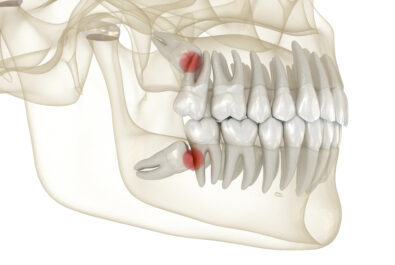Your third morals, commonly called the wisdom teeth, typically emerge during your late teenage years or when you’re in your early twenties. The emergence of these teeth, positioned at the back of the mouth, can pose problems for the alignment of all your teeth, which why some people opt to have their wisdom teeth extracted before they erupt. When should wisdom teeth be removed? If your wisdom teeth will negatively affect the alignment of your teeth, then it is best to have them removed.
Why Wisdom Teeth Extraction?
The most common reason for undergoing wisdom teeth extraction is to prevent your wisdom teeth from causing misalignment with your teeth or bite. Your mouth may not have the necessary space for the wisdom teeth, which forces your other teeth to shift out of place. If you have already undergone orthodontic treatment to straighten your teeth or correct your bite, the emergence of disruptive wisdom teeth could undo your progress. To determine if your wisdom teeth should be removed, your dentist will examine your mouth and review x-rays.
Potential Wisdom Teeth Problems
There are a variety of reasons why wisdom tooth extraction may be required or recommended for you. Common wisdom teeth problems that necessitate extraction include:
- Misalignment of teeth or bite as a result of emerging wisdom teeth
- Impacted wisdom teeth
- Damaged teeth adjacent to your wisdom teeth
- Increased likelihood of tooth decay because erupted teeth are difficult to clean and care for
- Inflammation of the gums, which could lead to infection and more severe forms of gum disease
- General pain and discomfort
Third Moral Extraction Procedure
A common concern with any dental procedure, especially extraction, is, “Will it hurt?” Rest assured, your dentist will ensure you are comfortable and do not experience pain throughout the third molar extraction procedure. The area will be numbed or you will be sedated so that the wisdom tooth extraction procedure is pain-free.














